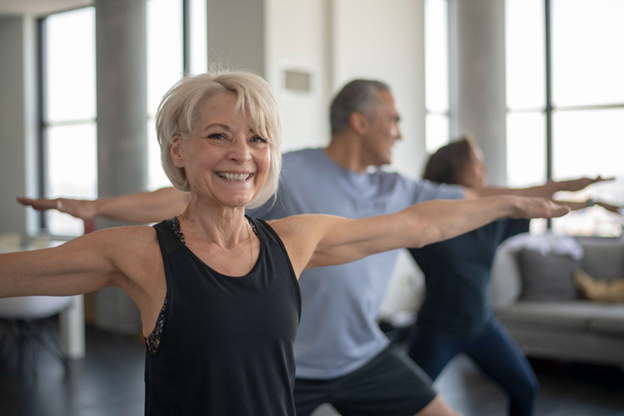How Exercise Improves Mood and Health in the Early Stages of Sobriety
Exercise habits can be particularly beneficial as medical sources show that physical activity can help with addiction recovery. In the first few months, when recovery is often the hardest, adopting a healthy routine can not only help keep your mind off drinking, but it can also help ease your recovery symptoms. When trying to get sober, establishing new healthy habits can go a long way toward your success and improving your well-being.
The Connection Between Alcohol Addiction Recovery and Exercise
When enjoyed in moderation, the effects of alcohol are typically minimal. However, frequent heavy drinking can affect several bodily functions, including the heart, brain, lungs, liver, muscle function, and the gut. As such, excessive alcohol consumption is also known to cause several health disorders, such as immune dysfunction, cancer, strokes, high blood pressure, and pancreatitis. It can also result in changes in mood and behavior.
Regular exercise, however, has long been proven to help boost health and mood, which is why it can help mitigate the health issues of alcohol consumption. Studies also show that the health benefits of exercise can also help reduce withdrawal symptoms and chances of relapse in those who are going through recovery.
For example, another organ impacted by alcohol consumption is the skin, but a regular fitness routine can support your skin health and counteract the negative effects of drinking. This is because exercise improves blood flow to the skin, which nourishes skin cells and helps carry away waste and free radicals. It can also help reduce stress, which can help mitigate stress-induced skin issues, such as acne and eczema.
Benefits of Exercise for Sobriety
Exercise not only acts as a healthy stand-in for addictive substances like alcohol, but it can also provide numerous benefits during recovery, including:
- Curbing cravings;
- Relieving stress;
- Boosting mood;
- Clearing the mind;
- Lessening withdrawal symptoms (i.e., pain, anxiety, low energy, poor sleep.)
A regular exercise routine also provides structure, which helps fill your time and thoughts while keeping you from reverting to old habits. It can also help boost your self-esteem and improve your self image.
Tips to Help You Beat Your Addiction and Overcome Barriers With Physical Fitness and Wellbeing Strategies
Overcoming alcohol addiction isn’t easy, but establishing new, healthier habits can help. Understandably, trying to stick to an exercise and wellness routine also isn’t easy when in recovery, but the exercise tips and wellness strategies outlined below can aid in recovery:
Make a Plan
One of the most important steps in recovery is making a plan. Instead of relying on yourself to get up and exercise at will, it helps if you map out a schedule or some sort of plan to help keep you on track. This can include using a physical calendar with days and times for exercising, a digital calendar, setting alerts on your phone to remind you when to exercise, or a daily exercise to-do list.
Get Your Heart Pumping
Aerobic exercises that really get your heart pumping are great for addiction recovery. So when making your plan, try to include as many aerobic exercises as you can, such as running, walking, swimming, biking, dancing, hiking, boxing, and martial arts.
Keep it Simple and Accessible
For some, the trouble with sticking with an exercise routine comes from setting overly challenging goals. When you’re in recovery and trying to get sober, making your exercise plan too complicated can hinder your progress and motivation.
Instead, consider starting with simple at-home workouts and fitness activities that you can do in your garage, living room, or any other available space. Some ideas include dumbbell workouts, 15-minute bodyweight workouts (no equipment needed), yoga, push-ups, burpees, plyometrics, squats, jumping jacks, and jump rope. These are just a few ideas to get you started, but you can also find thousands of home workout ideas and videos to watch online.
Consider Group Classes or a Team Sport
When motivation becomes a challenge, consider committing yourself to a team sport or joining a fitness studio to take group classes. Sometimes, simply being around others can help push you to work harder and stick to a routine. Group activities are also great for your mood and can help you establish new healthy relationships.
Hold Yourself Accountable
Another important step in learning to thrive without alcohol and sticking to a healthy routine is finding a way to hold yourself accountable. This can often be one of the most challenging parts of recovery, but it’s not impossible.
There are numerous resources out there that can help, such as therapy, online forums, recovery meetups, and group counseling sessions. You can also use remote alcohol monitoring systems to keep yourself honest.
Soberlink: Proof of Sobriety at Your Fingertips
When indisputable proof of sobriety is needed, there’s no better option than Soberlink. Known as an “alcohol monitoring system,” Soberlink’s technology provides accountability and rebuilds trust.
- Prove Sobriety Anytime, Anywhere: Soberlink uses a discreet and portable, professional-grade breathalyzer designed for convenience and reliable results
- Zero Wait-Time: BAC test results from Soberlink’s breathalyzer are sent immediately to whoever is chosen via text or email
- Data at a Glance: Soberlink’s software uses AI to organize and display all the test results as either green (compliant), yellow (missed), or red (non-compliant) icons
- Know the Right Person is Testing: With a built-in camera and advanced facial recognition, Soberlink automatically verifies the identity, so there’s no way someone else can test for them
- No Room for Cheating: Equipped with sophisticated sensors, Soberlink can detect tampering attempts, including the use of air pumps
Final Thoughts
While exercise alone isn’t enough to get you through recovery, it plays an important role. The key is to combine regular exercise with other healthy habits, such as prioritizing sleep, eating healthy foods, staying connected with loved ones, and leaning on others for support and accountability, such as group counseling and therapy. At the end of the day, the results you achieve will reflect the effort you put into your recovery.







